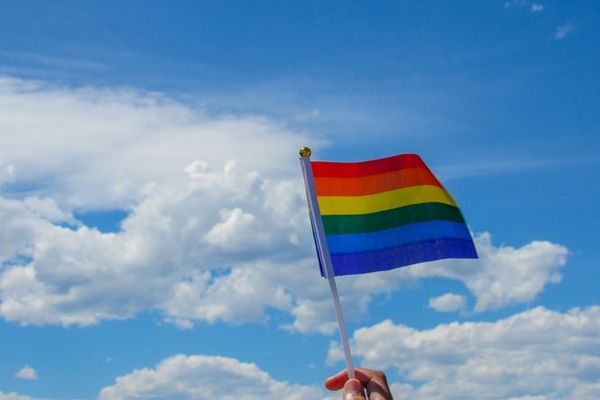The camera pans into a close-up. The music swells. The queer character comes onto the scene, ready to face the world as a fully actualized version of their true self. So goes the Hollywood narrative of coming out. This is, of course, far from the whole story. But this Hollywood narrative informs our cultural understanding of coming out. When we think of someone coming out, we think of someone who is completely secure in their sexuality or gender. If they have struggled with their identity in any way in the past, that tension has been resolved and they are now fully equipped to face the reality of life as a queer individual. The reality of the queer experience is much more nuanced than this, and treating coming out as the end-all, be-all of sexuality and gender realization can have harmful effects.
It is worth noting that everyone’s story is different, but many queer people would tell you that their coming out was not the final act of their story, but merely a humble and stumbling beginning. This moment does not always coincide with the resolution of all of one’s fears and insecurities, nor does it mean someone has everything figured out. In fact, it is common for a person to originally come out as one identity and then later come out as something different. This is completely normal, as self-discovery is a process that has no rulebook. However, one of the reasons LGBTQ+ people may be afraid to announce their identity is the fear that they will later discover they are a different identity. Queer people know that most people view coming out as a brave assertion of a settled identity, and therefore fear being judged if they don’t live up to that ideal or if they develop a new understanding of themselves that differs from a previously stated identity.
In addition, any queer person will tell you that you never come out just once. Every time you enter a new school or job or make a new friend, you have to come out all over again. I remember leaving high school completely comfortable in my bisexual identity after coming out to my family and friends. I then came to Furman, where I began forming new friendships. Against my own will, I found myself in the closet all over again. Obviously, I couldn’t list my sexuality alongside my name when introducing myself, and I did not feel comfortable announcing it unprompted. My plan was to casually bring my sexuality up in conversation when the opportunity presented itself, but before I knew it months had passed, and I still had not shared this aspect of my identity. Something that should not have been a big deal turned into an anxiety-producing situation. Of course, I eventually managed to clue my friends in, but when second semester rolled around and I joined a sorority, the same situation occurred all over again. Unfortunately, I anticipate that this was far from the last time I will encounter a similar scenario.
Ultimately, queer people should not be expected to come out at all. The reason we must continually announce our identities in every new space is because we are usually assumed to be straight or cisgender. However, these are not the default identities and should not be treated as such. It also should not be the responsibility of the LGBTQ+ community to make these announcements. I am fortunate that I have never had a traumatic experience with coming out, and yet I still find it tedious, exhausting, and anxiety-inducing. Given my experience, imagine how much more painful it is for the individuals who have traumatic associations with coming out. I struggled to share my sexuality with friends at Furman for months. Our community must be mindful of the assumptions we make of others and the language we use with them. Simple conversational shifts, such as asking “Are you in a relationship?” instead of “Do you have a boyfriend/girlfriend?” can create conversations and interpersonal relationships where no singular sexual identity is treated as the default.
One of the reasons I find coming out so exhausting is that I see no end in sight, no time when I enter a new environment where I am not forced back into the closet. That being said, I truly hope that there is a future where being queer is normalized and considered just as standard as being straight and cisgender.
